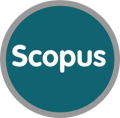The Implementation of Halal Tourism Ecosystem Model in Borobudur Temple as Tourism Area
DOI:
https://doi.org/10.15575/ijhar.v3i1.11119Keywords:
halal tourism, halal tourism destination ecosystem, halal tourism modelAbstract
References
Lestari & Amsari. (2019). The Communication of Halal Tourism with Sharia Regulation In Increasing Income and Community Welfare In North Sumatra. In Proceeding International Seminar on Islamic Studies, 1(1), 453 - 464.
Mohsin, A., Ramli, N., & Alkhulayfi, B. A. (2016). Halal tourism: Emerging opportunities Tourism Management Perspectives, 19, 137-143.
Morrison, A. M. (2013). Hospitality and Travel Marketing Edisi Ketiga. USA: Delmar Thomson Learning.
Palupi, M., Romadhon, R., & Arifan, N. (2017). The Importance of Optimization of Halal Tourism: A Study of development of Halal Tourism in Indonesia. In Conference: 29th International Business Information Management Association (IBIMA).
Peraturan Gubernur Provinsi Daerah Khusus Ibukota Jakarta Nomor 158 Tahun 2013. Tata Cara Sertifikasi Halal Restoran dan Non Restoran. 19 Desember 2013. Berita Daerah Provinsi Daerah Khusus Ibukota Jakarta Tahun 2013 Nomor 65023. Jakarta.
Peraturan Menteri Pariwisata dan Ekonomi Kreatif Republik Indonesia Nomor 2 Tahun 2014. Pedoman Penyelenggaraan Usaha Hotel Syariah. 9 Januari 2014. Berita Negara Republik Indonesia Tahun 2014 Nomor 74. Jakarta.
Rahman, M., Moghavvemi, S., Thirumoorthi, T., & Rahman, M. K. (2020). The impact of tourists' perceptions on halal tourism destination: a structural model analysis. Tourism Review, 75(3), 575-594.
Rahtomo & Sumaryadi. (2016). Halal Tourism Ecosystem Destinations.
Sánchez, A. & Moral-Moral, M. (2019). Halal tourism: state of the art. Tourism Review, 74(3), 385-399.
Septiani & Ridlwan. (2020). The Effects of Halal Certification and Halal Awareness on Purchase Intention of Halal Food Products in Indonesia. Indonesian Journal of Halal Research, 2(2), 55-60.
Sutono, A. (2019). Buku Rencana Strategis Pengembangan Pariwisata Halal. Bandung
Undang-Undang Republik Indonesia Nomor 10 Tahun 2009. Kepariwisataan. 16 Januari 2009. Lembaran Negara Republik Indonesia Tahun 2009 Nomor 11. Jakarta.
Undang-Undang Republik Indonesia Nomor 21 Tahun 2008. Perbankan Syariah. 16 Juli 2008. Lembaran Negara Republik Indonesia Tahun 2008 Nomor 94. Jakarta.
Undang-Undang Republik Indonesia Nomor 33 Tahun 2014. Jaminan Produk Halal. 17 Oktober 2014. Lembaran Negara Republik Indonesia Nomor 5604. Jakarta.
Downloads
Published
How to Cite
Issue
Section
Citation Check
License
Copyright (c) 2021 Indonesian Journal of Halal Research

This work is licensed under a Creative Commons Attribution-ShareAlike 4.0 International License.
Authors who publish in Indonesian Journal of Halal Research agree to the following terms:
- Authors retain copyright and grant the journal right of first publication with the work simultaneously licensed under a Creative Commons Attribution-ShareAlike 4.0 International (CC BY-SA 4.0) License that allows others to share the work with an acknowledgment of the work's authorship and initial publication in this journal.
- Authors are able to enter into separate, additional contractual arrangements for the non-exclusive distribution of the journal's published version of the work (e.g., post it to an institutional repository or publish it in a book), with an acknowledgment of its initial publication in this journal.
- Authors are permitted and encouraged to post their work online (e.g., in institutional repositories or on their website) prior to and during the submission process, as it can lead to productive exchanges, as well as earlier and greater citation of published work (See The Effect of Open Access).

Indonesian Journal of Halal Research by Halal Center UIN Sunan Gunung Djati Bandung is licensed under a Creative Commons Attribution-ShareAlike 4.0 International License.
Based on a work at https://journal.uinsgd.ac.id/index.php/ijhar.
















